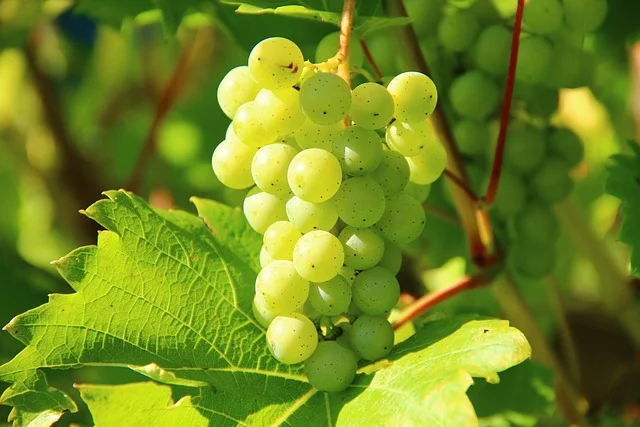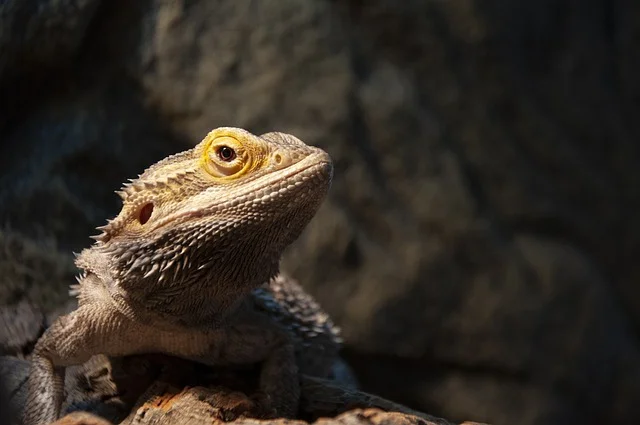Bearded dragons, with their unique appearance and docile nature, have become popular pets among reptile enthusiasts. As responsible owners, it is essential to provide them with a balanced and nutritious diet to ensure their overall health and well-being. One common question that arises is whether bearded dragons can eat grapes. In this comprehensive guide, we will explore the benefits and risks of feeding grapes to bearded dragons, the appropriate serving size, and how to incorporate this fruit into their diet.

Table of Contents
Understanding the Nutritional Value of Grapes for Bearded Dragons
Before delving into whether bearded dragons can consume grapes, it is crucial to understand the nutritional value of this fruit. Grapes are known for their high sugar content and are packed with essential vitamins and minerals. However, it is important to note that while grapes can be a healthy addition to a bearded dragon’s diet, they should be consumed in moderation due to their high sugar content.
In a serving of grapes, which is approximately 100 grams, you can expect the following nutritional composition:
- Calories: 69
- Fat: 0.2 grams
- Carbohydrates: 18 grams
- Fiber: 0.9 grams
- Sugars: 16 grams
- Protein: 0.7 grams
Grapes also contain various vitamins and minerals, including vitamin C, vitamin K, potassium, and manganese. These nutrients can contribute to the overall health and vitality of your bearded dragon when included as part of a balanced diet.
The Benefits of Feeding Grapes to Bearded Dragons
While grapes should be given in moderation, they do offer some benefits for bearded dragons when incorporated into their diet. Let’s explore some of these advantages:
1. Hydration:
Bearded dragons require adequate hydration to maintain their overall health. Grapes, with their high water content, can help fulfill their hydration needs. By including grapes in their diet, you can ensure that your bearded dragon remains properly hydrated, especially in dry environments.
2. Nutritional Value:
Grapes contain essential vitamins and minerals that can contribute to your bearded dragon’s overall well-being. The vitamin C in grapes can support their immune system, while vitamin K promotes healthy blood clotting. Additionally, the minerals present in grapes, such as potassium and manganese, play important roles in various bodily functions.
3. Variety in Diet:
Offering a diverse range of foods to your bearded dragon is crucial for their overall health and mental stimulation. Including grapes in their diet can help provide variety and prevent dietary monotony.
Understanding the Risks of Feeding Grapes to Bearded Dragons
While grapes offer certain benefits, it is important to be aware of the potential risks associated with feeding them to bearded dragons. Understanding these risks will help you make informed decisions regarding the inclusion of grapes in your pet’s diet.
1. High Sugar Content:
As mentioned earlier, grapes have a high sugar content. While this can provide a quick energy boost, excessive sugar consumption can lead to obesity and other health issues in bearded dragons. Therefore, it is crucial to limit the amount of grapes given to your pet and ensure they form only a small portion of their overall diet.
2. Oxalates and Calcium Absorption:
Grapes contain oxalates, which can inhibit the absorption of calcium in bearded dragons. Calcium is essential for their bone health and overall growth. Therefore, it is important to balance the intake of foods high in oxalates, such as grapes, with calcium-rich sources to prevent any potential calcium deficiencies.
3. Digestive Issues:
The seeds present in grapes can pose a digestive risk for bearded dragons. These seeds are difficult for them to digest and can potentially lead to gastrointestinal blockages. To mitigate this risk, it is important to remove all seeds from grapes before offering them to your pet.
Serving Size and Frequency of Grape Consumption for Bearded Dragons
Now that we have examined the benefits and risks of feeding grapes to bearded dragons, let’s discuss the appropriate serving size and frequency of grape consumption for these reptiles.
1. Serving Size:
When offering grapes to your bearded dragon, it is important to remember that they should only make up a small portion of their overall diet. A general guideline is to provide one or two small pieces of a large grape at a time. This ensures that your pet receives the nutritional benefits without consuming excessive sugar or risking digestive issues.
2. Frequency:
The frequency of grape consumption for bearded dragons depends on their age and size. Younger dragons may have a higher tolerance for fruits, including grapes, and can be offered small amounts more frequently. However, as they mature, it is best to limit grape consumption to once or twice a week.
Preparing Grapes for Bearded Dragons
To ensure the safe consumption of grapes by your bearded dragon, it is important to prepare them properly. Follow these steps to prepare grapes for your pet:
- Wash the grapes thoroughly to remove any pesticide residue. This is crucial to prevent any potential harm to your bearded dragon.
- Peel the grapes to remove the skin. While some bearded dragons may enjoy eating grapes with the skin, removing it can help reduce the risk of digestive issues and pesticide ingestion.
- Chop the grapes into bite-sized pieces. This makes it easier for your pet to consume and minimizes the risk of choking.
- Remove all seeds from the grapes. Bearded dragons have difficulty digesting seeds, and their ingestion can lead to digestive problems.
By following these steps, you can ensure that the grapes you offer to your bearded dragon are safe and suitable for consumption.
Balancing Grapes with a Balanced Diet
While grapes can be a healthy addition to your bearded dragon’s diet, it is important to remember that they should not be the sole focus. A balanced diet for bearded dragons typically consists of the following components:
- Insects: Insects, such as crickets, mealworms, and dubia roaches, should form the majority of your bearded dragon’s diet. These provide essential protein and other nutrients necessary for their growth and development.
- Vegetables: A variety of leafy greens and vegetables should be offered to provide additional vitamins, minerals, and fiber. Examples include collard greens, kale, dandelion greens, and butternut squash.
- Fruits: Fruits, including grapes, can be included in small amounts to provide hydration and additional nutrients. However, they should not exceed 10% of your bearded dragon’s overall diet.
- Supplements: Bearded dragons require additional supplementation to ensure they receive all the necessary nutrients. Calcium and vitamin D3 supplements are particularly important for their bone health.
By incorporating these components into your bearded dragon’s diet and monitoring the portion sizes and frequency of grape consumption, you can provide a well-rounded and balanced nutrition plan for your pet.

The Bottom Line: Can Bearded Dragons Eat Grapes?
In conclusion, bearded dragons can eat grapes as part of a balanced diet. Grapes offer hydration, essential vitamins, and minerals to these reptiles. However, it is important to feed grapes in moderation due to their high sugar content and potential digestive risks. Always ensure that grapes are thoroughly washed, peeled, chopped, and free from seeds before offering them to your bearded dragon. By following these guidelines and incorporating grapes into a well-rounded diet, you can ensure the health and happiness of your beloved pet.
Remember, when it comes to feeding your bearded dragon, variety, moderation, and balance are key. Consult with a reptile veterinarian or specialist to create a personalized diet plan that suits your individual pet’s needs. With proper care and nutrition, your bearded dragon will thrive and flourish for years to come.
Disclaimer: This article is for informational purposes only and is not intended to replace professional advice. Always consult with a veterinarian or reptile specialist for guidance on your specific bearded dragon’s dietary needs.





